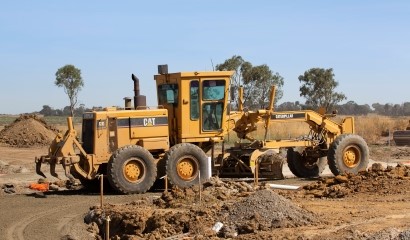EMR may have to cut Kestrel Coal price expectations in buyer’s market
EMR Capital, the vendor of Australian metallurgical coal miner Kestrel Coal, may have to cut its price expectation to get a deal done as market conditions move in favour of buyers, according to a sector investor and analyst familiar with the market.
EMR is still fielding interest from investors for Kestrel, including from non-traditional investors such as sovereign wealth funds, according to a source familiar with the situation.
It has received interest from international players, including from the Middle East, but does not have a specific timeline for exiting Kestrel and may end up holding on to the asset, said the source.
Private equity firm EMR’s Kestrel sale attempt was revived in recent months, after it appointed sell-side advisers Bank of America and Macquarie a year ago, according to local media reports.
EMR and Indonesian coal miner Adaro Energy jointly own 80% of Kestrel, with the remaining 20% owned by Japan’s Mitsui & Co. The 80% interest is held by Kestrel Coal Resources, a joint venture (JV) in which EMR and Adaro own 52% and 48%, respectively, according to the miner’s website.
According to the sector investor, EMR had received some offers since last year, but they did not meet its price expectations. The market valuation for EMR and Adara’s joint 80% stake in Kestrel is between USD 1.8bn and USD 2bn, while EMR is expecting USD 2.5bn, the sector investor said.
Rough timing
Timing is not on EMR’s side as coal prices are depressed, the sector investor said, adding that it may take longer for the PE owner to exit if it sticks to its price expectation.
It’s a buyer’s market now, with many Queensland-based coal assets for sale on the one hand and subdued buyer interest on the other, according to Andrew Gorringe, energy finance analyst for Australian coal at the Institute for Energy Economics and Financial Analysis (IEEFA), an international think-tank.
“The market has clearly switched from a seller’s market to a buyer’s market,” he said. “It will be challenging for vendors unless those asset prices come down.”
In addition to Kestrel, Anglo American will need to find new buyers for its Queensland coal assets after Peabody in August terminated an agreed USD 3.8bn acquisition. Anglo’s CEO last month said it could launch a new sale process as soon as production restarts at its Moranbah North Mine.
More than half of Queensland’s underground coal mines are either wholly or partially up for sale, including those already on the market and those starting to field enquiries, Gorringe said, citing high cost of operating, depressed coal prices and environmental risk management burdens among issues impacting these coal miners.
“All these factors have turned the market into a very much ‘buyer’s market’,” he said. “They (buyers) have got their choices of assets now.”
The sector investor agreed, saying there are only a handful of serious buyers for coal assets, who will also bid for Anglo coal once that sale process restarts.
From a general standpoint, Samy Mansour, partner at Clayton Utz, echoed that the coal M&A market is shifting towards buyers, principally due to structural changes, and particularly significant increase in coal royalties that strains valuations, but argued that there is no shortage of demand for coal assets.
He noted that the potential buyer pool for coal assets remains largely unchanged, consisting mainly of large multinational companies seeking to secure supply for their operations or for trading purposes, and increasing interest from private equity players.
Finding buyers
Among those approaching Kestrel are non-traditional buyers of coal assets that have long-term interest in coal and are keen to secure supply, the first source and a second source familiar said.
Indian steel producer JSW Steel – which increased its stake in Matt Latimore’s M Resources NSW to 83.33% in September from 66.67% in August, giving it a 30% stake in Illawarra Coal – is one of the parties interested in Kestrel, according to the second source.
JSW Steel is actively looking to diversify coal sourcing and strengthen supply resilience for steelmaking, the second source added. It is also expanding its vertically integrated strategy through global acquisitions to better manage climate and other risks, he said.
The Indian company could certainly look at Kestrel Coal, and Matt Latimore and M Resources may also have been approached by sell-side advisers, the sector investor said.
Local media have also pointed to Stanmore Coal, Yancoal, Whitehaven and Abu Dhabi-based International Resources Holding (IRH) as potential parties looking at Kestrel.
The current sale process only relates to EMR selling its own stake in Kestrel, said a third source and the sector investor. Adaro has not committed to sell its stake, the sector investor added.
IEEFA’s Gorringe suggested most coal companies are now looking at Whitehaven’s example to minimize their capital outlay, citing Whitehaven’s sale of a partial interest in Blackwater coal mine to its steelmaking customers, Nippon Steel and JFE Steel.
Kestrel Coal, EMR Capital and JSW Steel declined to comment. M Resources declined to comment on its interest in Kestrel or whether it is jointly bidding for the asset along with Illawarra Coal partner JSW Steel. Adaro did not reply to requests for comments.











